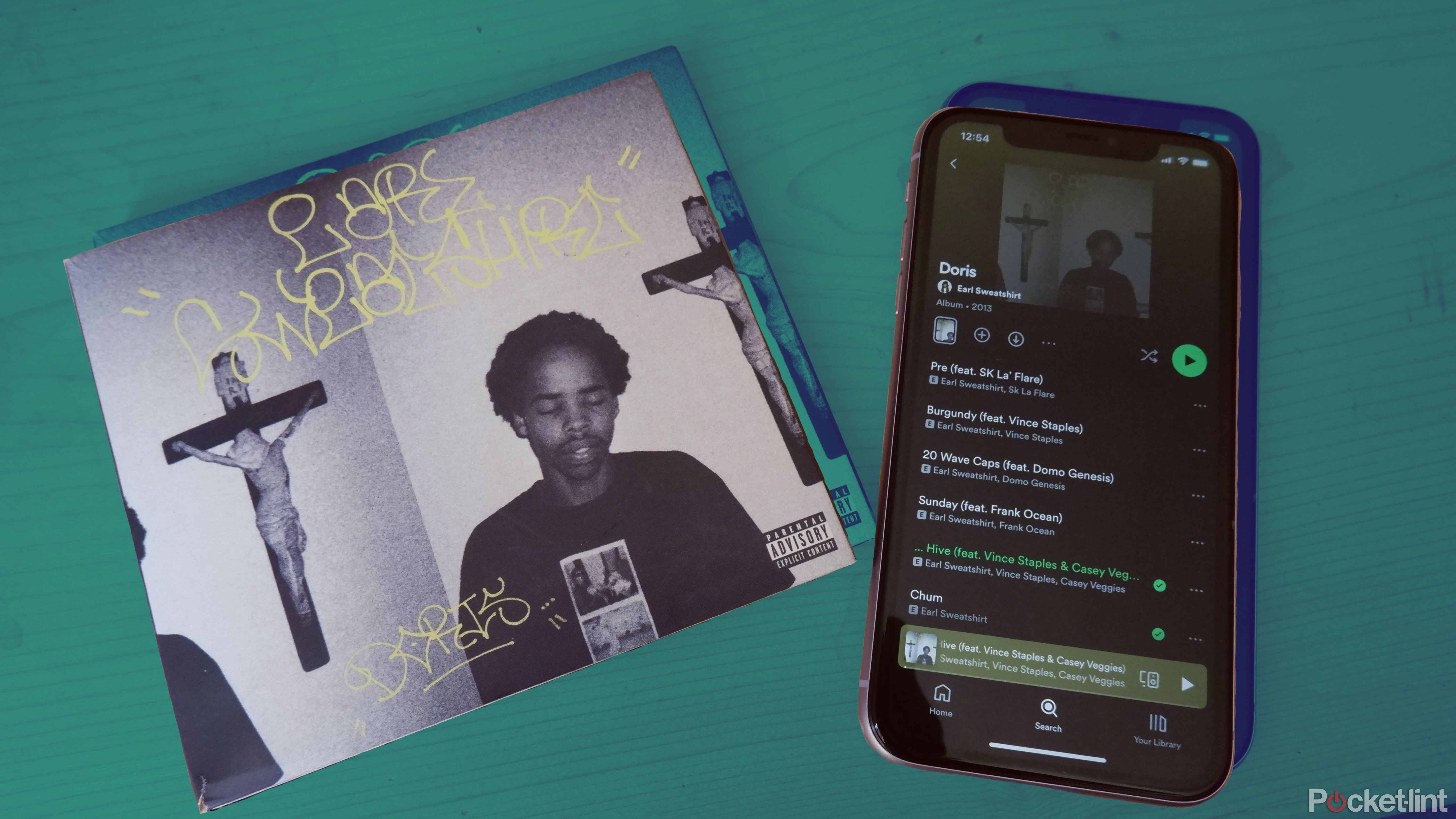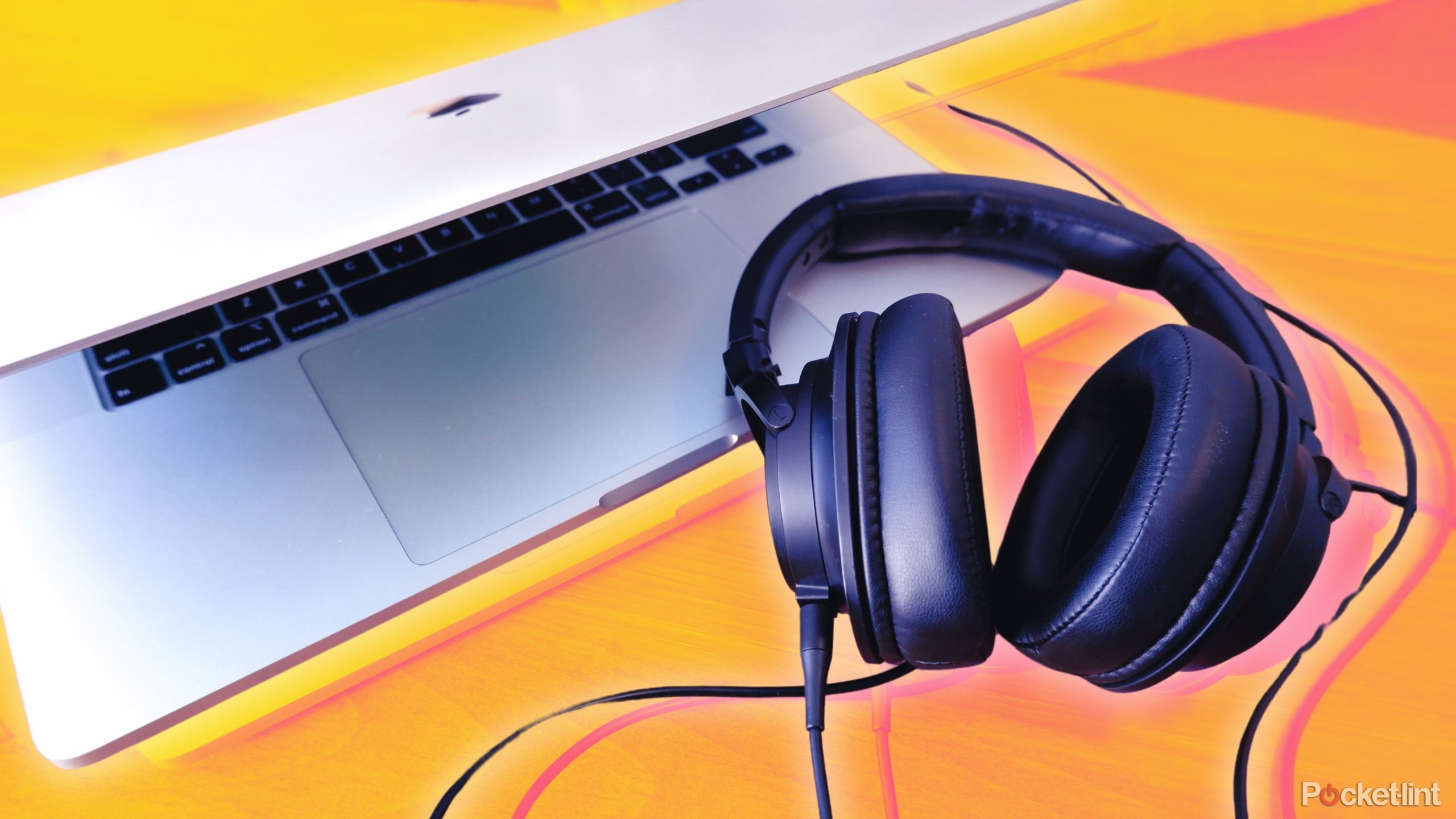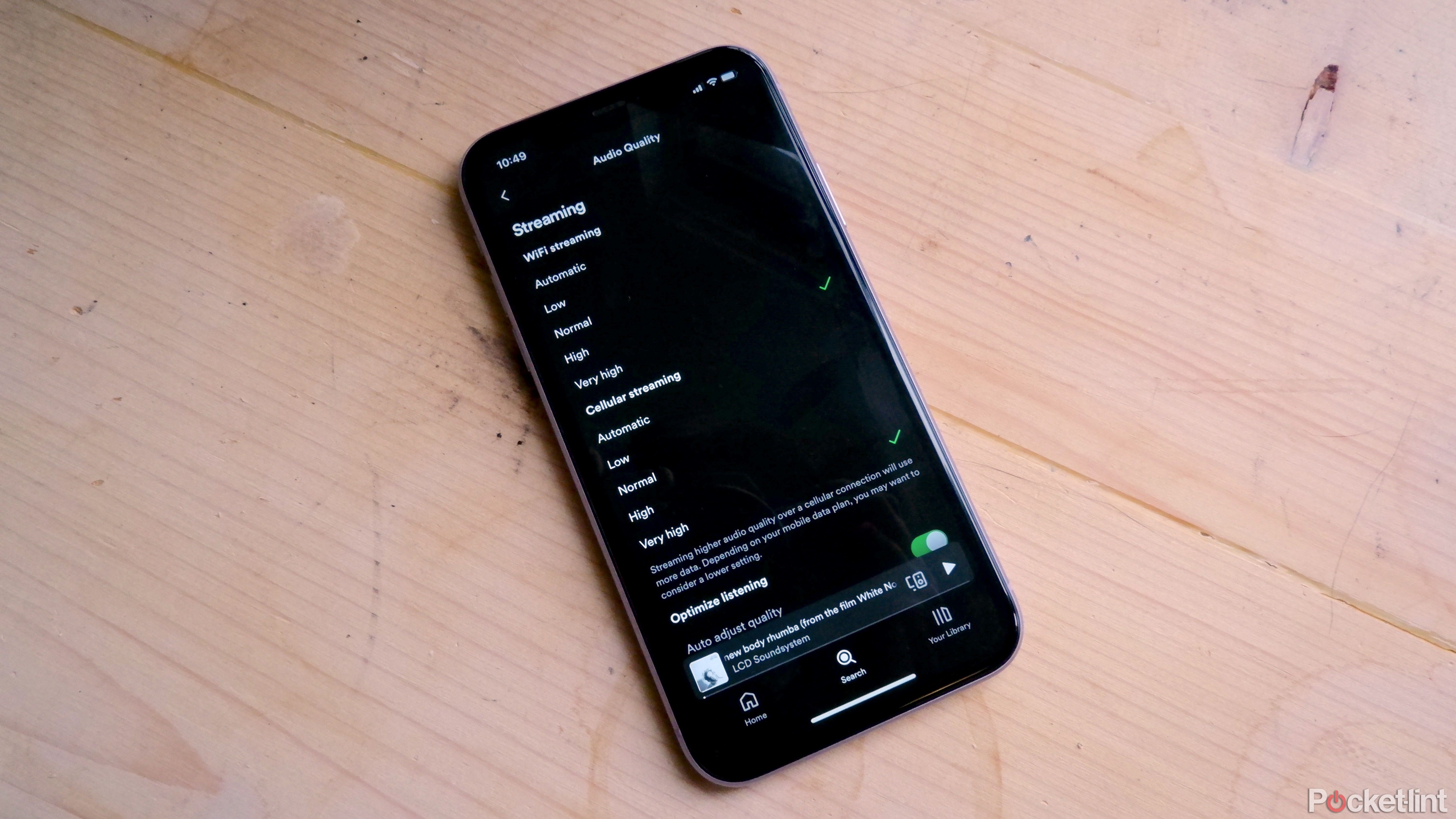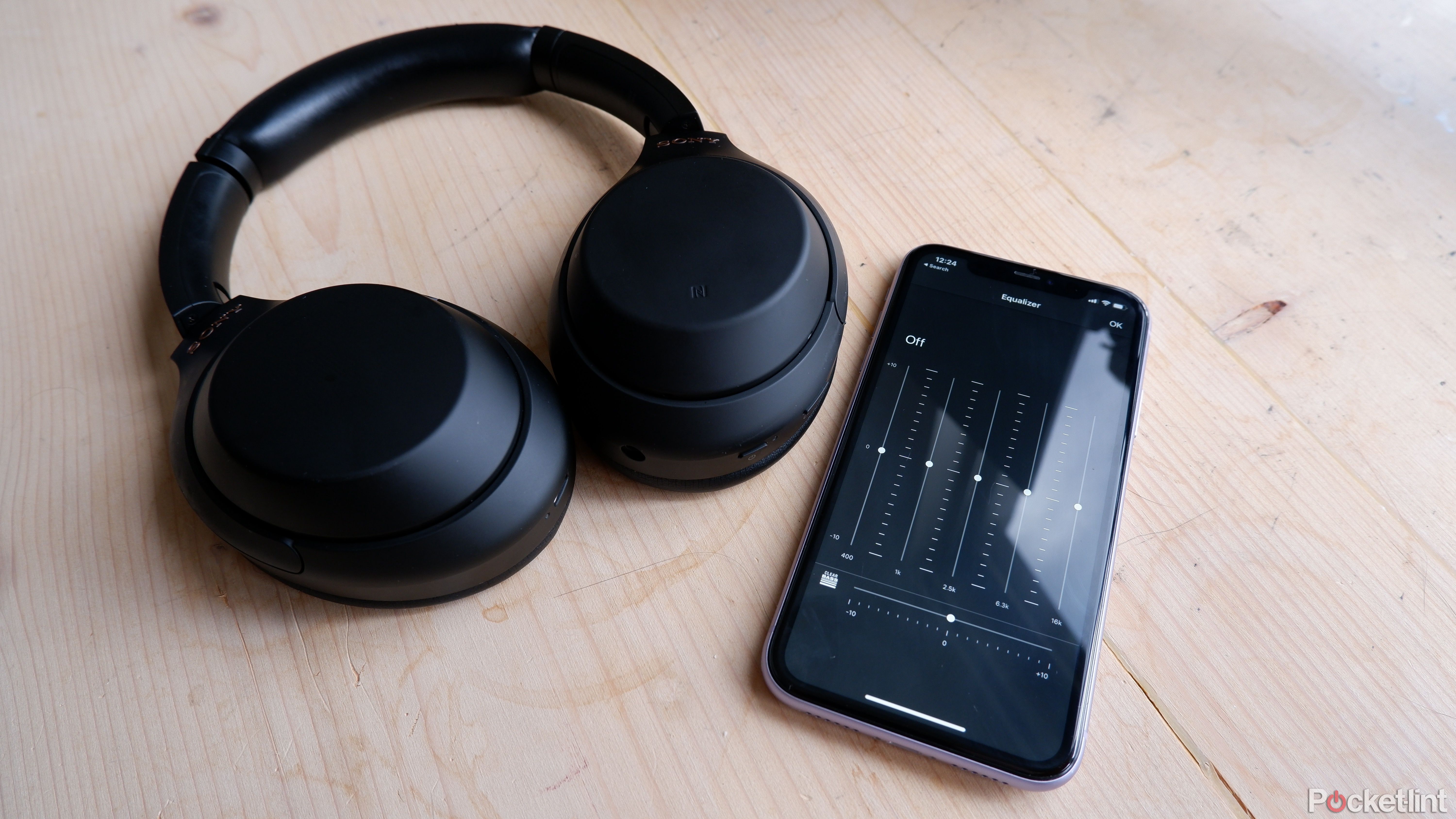Key Takeaways
- Lossless audio is higher quality, but most listeners won’t notice a difference compared to high-quality lossy formats.
- Compression makes audio files easier to store and transfer, and most streaming services offer compressed files.
- Enjoying lossy compressed music is more practical for everyday listeners because it saves storage space and uses less data.
It seems lossless audio has taken audiophile center stage lately, and for a solid reason: it’s higher quality than lossy formats. An attuned ear can tell the difference between lossy and lossless audio files, so audiophiles act like it’s the end-all be-all of music enjoyment. And as an author who has written so much about lossless audio myself, I’ve definitely added to the hype. While I think it’s important to recognize the benefits of lossless audio, I also think it’s important to acknowledge the importance of other file formats, some of which are lossy.
Related
Wired headphones are making a comeback, so what is lossless audio?
Wired earbuds are in again, ushering in lossless audio — which is bringing CD-like quality to the streaming era.
What is compression?
File details lost, for the sake of storage and transfers
Compression, when it comes to files, means reducing the size of a file by taking away some of the details that are maybe less important — in order to retain the important information and the bigger picture of the file — to make it easier to store and transfer. In the case of audio, this means compressing masters to make these audio files more usable by the average person who only has so much disk space and bandwidth. A good analogy for the difference compression makes in audio files is image compression, which we can more easily see.
When you have two images, a raw file and a JPEG, the raw file straight from the camera is going to be extremely high quality and detailed, but the file size will be massive. When it gets compressed into a JPEG, it may look more pixelated, but you still understand what you’re looking at, you get the picture. Common compressed audio formats include MP3, AAC, and Ogg, as well as FLAC, which, while lossless, is still compressed.
Compression ensures that the files don’t take up a ton of storage space, while maintaining the quality of the audio itself.
All files you’ll find on streaming services are going to be compressed, either lossless or lossy. The same goes for files you buy and download yourself — chances are, artists aren’t going to be selling uncompressed WAV files of their albums. Compression ensures that the files don’t take up a ton of storage space, while maintaining the quality of the audio itself. Lossless audio files are compressed in a way that ensures you don’t lose the full audio quality of the track, while lossy compression does take away details from the audio, but does so in a way that makes the lowest impact possible for the size the file is intended to be.
Why would you listen to a lossy compressed file?
Modern problems, modern solutions
Before streaming was the mainstream, you were likely downloading music (legally, of course), and chances are you ran into some MP3 files that sounded absolutely atrocious. These were probably 96kbps MP3s, which can just sound relatively undetailed and lacking nuance. Compare that to 320kbps MP3 files or Ogg files (the standard on Spotify), which sound genuinely really good, and are very standard for the average listener.
Most people won’t venture beyond that audio quality, and that’s because the way those files are compressed, even though they technically lose some detail, actually sound good regardless.
If you’re listening to Spotify using mobile data, you’re saving a lot of that data by streaming more compressed lossy formats.
The key factors behind the use of lossy compressed formats like MP3, Ogg, AAC, and others is that they save storage space because their lower bitrate allows for faster file transfer while taking up less space, and it also saves you bandwidth when streaming. So, if you’re listening to Spotify using mobile data, you’re saving a lot of that data by streaming more compressed lossy formats compared to how much you’d be using if you were streaming FLAC files over mobile data.

Related
I’m listening to CDs instead of streaming for these 5 reasons
While I’m not writing off streaming entirely, I’m definitely preferring CDs these days.
Now, listening to lossy compressed music isn’t just worthwhile for the storage space and data you save. I also think that enjoying lossy compressed music is best for most listeners because most people simply won’t get anything from listening to lossless audio. The difference between lossless and lossy (but high quality) audio files are so minimal to the untrained ear, if at all audible, that if you have to spend any extra money or go out of your way to listen to said lossless audio, you’re probably wasting your time.
Ultimately, the lossy compressed files we listen to most often are more than adequate.
So, while I do think it’s great that lossless audio is more widely available on more streaming platforms, and I think that owning your own physical media is great for a lot of reasons (including the fact that CDs are lossless), if you are already listening to lossy compressed audio, and you’re happy with it, you really have little to no reason to change what you’re listening to. You could put in the work to try to hear the difference between lossy and lossless files or make more disk space to store said files, but ultimately, the lossy compressed files we listen to most often are more than adequate.
Don’t let any audiophiles on Reddit convince you otherwise — if something works for you, you are not obligated to change it because it’s “better” another way. And truthfully, the amount of storage space and data you save by listening to lossy compressed files is a good enough reason alone.

Related
3 reasons I prefer listening to lossless audio
As an audiophile, these lossless audio aspects not only trained my ear, but enhance my listening.
Trending Products

Cooler Master MasterBox Q300L Micro-ATX Tower with Magnetic Design Dust Filter, Transparent Acrylic Side Panel…

ASUS TUF Gaming GT301 ZAKU II Edition ATX mid-Tower Compact case with Tempered Glass Side Panel, Honeycomb Front Panel…

ASUS TUF Gaming GT501 Mid-Tower Computer Case for up to EATX Motherboards with USB 3.0 Front Panel Cases GT501/GRY/WITH…

be quiet! Pure Base 500DX Black, Mid Tower ATX case, ARGB, 3 pre-installed Pure Wings 2, BGW37, tempered glass window

ASUS ROG Strix Helios GX601 White Edition RGB Mid-Tower Computer Case for ATX/EATX Motherboards with tempered glass…











